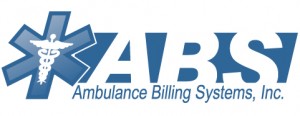Authorization and Routine Itemized Billing Procedures
Authorization and Routine Itemized Billing Procedures
Having covered the basic issues surrounding procedural errors we are going to have a closer look as to why they are happening and if you recognized any of these issues then ABS Inc. believes you need to contact us and discuss your options.
Authorization signatures
Obtaining authorization appears to be the main issue, with the patient deemed to be in no condition to be able sign the appropriate form by some, and others reluctant to approach the subject as it may seem insensitive under the circumstances. The first scenario is quite feasible in some cases but there can be no excuses to willfully violate Medicare regulations.
There are alternatives methods to obtaining signed authorization.
- If a parent or legal guardian is present on arrival at hospital, authorization can be sought from them by the transport personnel, although there is no legal obligation for them to sign to form.
- When send the initial statement, enclose the authorization and once return with a signature, bill the insurance company or Medicare.
- Request your local hospitals to add the authorization form to their other release and authorization documents.
Routine Billing for services and supplies
Routine itemized billing for services and medical supplies is the next common procedural error. Medicare specifically states only the services and supplies that are actually provided are covered yet it has become apparent that there are still EMS departments that adopt this approach to their billing process, in all probability to make the workload quicker and easier. It is a violation of Medicare regulations to charge for any services and supplies and if you practice routine itemized billing, you will eventually be taken to task by Medicare as they will recognize a pattern when auditing and a questionable ‘over use’, as far as the claims indicate, of an item or items will act as a red flag.

